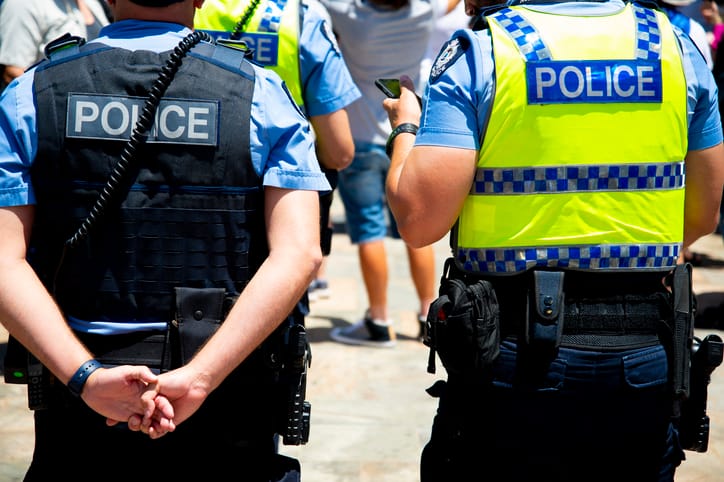
Effective leadership in law enforcement requires a dynamic blend of vision, integrity, communication, and a commitment to personal and professional development. Police executives are not only responsible for operational oversight but also for shaping the culture and public perception of their departments. As noted by Miguel Iglesias, their ability to lead with accountability, navigate complex challenges, and inspire those under their command directly influences the safety and trust within the communities they serve. Successful leaders create settings where transparency, innovation, and growth are encouraged, helping officers perform at their best while fostering meaningful community relationships.
The Role of a Police Executive
A police executive holds a position that shapes the internal structure of the department and the relationship with the community it serves. Their leadership decisions guide policy, direct resources, and influence the behavior and morale of officers at every level. An effective executive balances administrative oversight with a clear understanding of field operations. Public trust often hinges on how well a department responds to issues, and that starts with leadership that is steady, informed, and engaged. Leaders must remain in tune with the frontline and the broader organizational mission to lead effectively.
Leading with Integrity and Accountability
Integrity is the foundation of effective leadership in law enforcement. A police executive must consistently model ethical behavior, especially in situations that demand difficult decisions. When officers see that their leader upholds core values regardless of pressure, it strengthens the department’s culture and reinforces a sense of purpose.
Accountability goes hand in hand with integrity. When leaders openly acknowledge mistakes and take responsibility for outcomes, it sends a powerful message throughout the ranks. During periods of public scrutiny, transparent leadership can rebuild damaged trust and signal a commitment to fairness. Departments led by individuals who prioritize both ethics and accountability often experience stronger community partnerships and reduced internal misconduct. Moreover, a culture of accountability encourages proactive problem-solving at every level.
Communication that Builds Trust
Clear, consistent communication is one of the most powerful tools a police executive has. Whether addressing the media during a crisis or speaking directly with patrol officers, the ability to convey information thoughtfully can shape both perception and performance. Miscommunication, on the other hand, can escalate tensions or erode confidence quickly.
Strong communicators create a sense of openness within their departments. When officers feel heard and informed, morale improves, and collaboration increases. Similarly, communities are more likely to engage positively with law enforcement when messaging is transparent and respectful. In times of uncertainty, a leader who communicates with clarity and empathy can steady the agency and the public.
Strategic Planning and Visionary Leadership
Visionary leadership means looking beyond the immediate and preparing a department for what lies ahead. A police executive who embraces strategic thinking can guide their team through changing challenges such as shifts in legislation, advances in technology, and community expectations. This foresight allows policies to adapt proactively rather than reactively, reducing operational friction.
Strategic leaders also anticipate resource needs and plan for talent development well in advance. Long-term success in law enforcement often depends on setting clear priorities and aligning them with broader public safety goals. Vision isn't just about ideas—it's about execution that endures.
Emotional Intelligence and Team Empowerment
Leadership rooted in emotional intelligence fosters a healthier and more resilient unit. When a police executive demonstrates empathy, self-awareness, and the ability to listen without judgment, it encourages open communication and trust throughout the department. Officers are more likely to perform at their best when they feel supported by leadership that understands the emotional demands of the job. This kind of leadership also helps in de-escalating internal conflicts and strengthening peer relationships.
Empowerment is not just about delegating tasks; it's about inspiring confidence and creating an atmosphere where initiative is valued. Departments led by emotionally intelligent executives often experience higher morale and stronger team cohesion, especially during high-pressure situations. When people feel trusted and respected, they tend to go above and beyond their responsibilities.
Commitment to Professional Growth
Growth-oriented leadership recognizes that learning doesn't stop at promotion. A Successful police executive invests in ongoing development—not just for themselves but also for their entire team. This approach nurtures innovation, sharpens skills, and keeps the department aligned with best practices. Training programs, mentorship opportunities, and cross-agency collaboration all contribute to a culture that values continuous advancement.
By fostering a culture where curiosity and improvement are encouraged, leaders can build agencies that adapt quickly and stay ahead of emerging challenges. A mindset focused on progress ultimately benefits internal operations and the communities served. Professional development also ensures that future leaders are prepared to carry forward the department’s mission with confidence.


